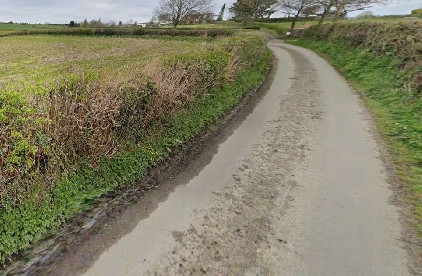
Campaigners staged another demonstration outside Shropshire Council’s headquarters to voice their mounting concerns over investments the county’s pension fund continues to hold in fossil fuel companies.
Dressed in white lab coats, protestors from Fossil Free Shropshire brandished a giant thermometer as they urged the pension fund committee to “listen to the science”.
The demonstration was held ahead of a meeting on Friday to discuss the first ever climate risk report published last week by Shropshire County Pension Fund (SCPF).
The report analyses the risk to the £2 billion fund’s investments if global average temperatures increase by 2°C, 3°C and 4°C.
“The pension fund’s new report is a work of fiction,” said Jo Blackman, spokesperson for Fossil Free Shropshire.
“It makes no mention of 1.5°C, the level that the Paris Agreement asks the world to stay below.
“It says that a catastrophic 2°C of warming will be beneficial for profits and it thinks that 4°C will only impact its returns by 0.06 per cent a year.
“Scientists tell us that 4°C is a game over scenario that will result in hundreds of millions dead, the collapse of ecosystems and a climate that is impossible for humans to adapt to. This report must have been written in cloud cuckoo land.”
Six members of the public submitted questions to the committee. One, from nine-year-old Alice Russell and 10-year-old Annabelle Read, quoted Sir David Attenborough’s comments over banks and pension funds investing in fossil fuel, “when these are the very things that are jeopardising the future which we are saving for”.
Another question asked committee members to read the United Nations Intergovernmental Panel on Climate Change (IPCC) report, published in 2018, which highlights the need for “rapid and unprecedented decarbonisation before 2030 to keep global temperature rises below 1.5C and avoid catastrophic droughts, wild fires and ecosystem collapse around the world”.
Ms Blackman said the fund’s continued investment in the likes of BP and Shell were incompatible with Shropshire Council’s declaration of a climate emergency last year.
The council, which administers the fund on behalf of public sector organisations across the county, voted to ask the fund to divest from fossil fuels at a meeting in July. Town councils including Shrewsbury, Oswestry, Much Wenlock, Wem and Bishop’s Castle have followed suit.
At the start of the meeting, committee chairman Thomas Biggins said he welcomed the interest from members of the public but warned the committee did not yet have all the answers people wanted.
Councillor Biggins said: “The pensions committee has embarked on an extensive programme of work to understand all aspects of its responsibilities and the options available to it for managing the risk of climate change.
“We are not restricting ourselves to simplistic agreements about financial return or divestment, we are looking to understand how we can fulfil our responsibilities to the pension fund, how we can adequately manage risk and how we have a positive impact on climate change and responsible investment generally.
“This programme of work needs to be completed before we can provide answers that do justice to the questions being raised, so while I welcome public questions I must ask that we are afforded the time to make the right decisions on the back of clear, independent and extensive evidence from the experts in these fields.”
The climate risk report was created in line with best practice guidelines from the Taskforce for Climate-related Financial Disclosures (TCFD). It will be followed next year by a dedicated climate strategy and climate stewardship plan.
SCPF is one of the first local authority pension funds in the country to publish such a report.
The committee heard the report found the fund’s asset allocations to be “robust” in all three scenarios, and that the 2°C scenario would be the best of the three outcomes “from a returns perspective”. A 1.5°C scenario will also be developed.
Councillor Chris Mellings said there was a “desire to see us follow a policy of divestment” and asked that future reports also take this into account.
The fund has previously defended its continued investment in fossil fuels, saying engagement as an investor gave it “greater influence” to push for positive changes within the companies.
Representatives from BMO Global Asset Management, which the fund employs to undertake engagement with companies with which it invests, also gave a presentation to the committee.
They said there were “pros and cons” to both divestment and the current engagement approach.
Alan Fitzpatrick from BMO’s responsible investment team said: “It’s important to consider clearly the objective of the investor and the likelihood of success under each approach.
“For divestment, you can argue that divestment on the grounds of robust financial analysis of the risks and opportunities is entirely justified, and similarly divestment for any other reason may be justified on ethical grounds.
“Although while it can send a signal to policy-makers of investors’ frustration at the lack of progress towards tackling climate change, one could argue that divestment is unlikely to contribute to the core objective, that is mitigating climate change.”
Mr Fitzpatrick said engagement could be an “effective tool”, citing BP as one company which has responded positively to engagement around the climate change agenda.
But he added that this approach has “its own challenges”, and other companies are not as willing to engage.
The committee voted to endorse the climate risk report.


 Revealed: The main roads in Herefordshire prioritised for repairs
Revealed: The main roads in Herefordshire prioritised for repairs
 Villagers fustrated over lack of road repairs
Villagers fustrated over lack of road repairs
 New Food and Drink group launched at online event
New Food and Drink group launched at online event
